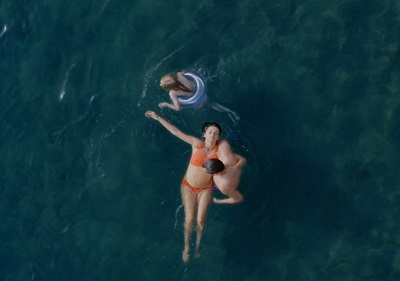
"I’m pretty sure singing gynaecologists are not a dime a dozen"
Review by Jennifer Brough
Magda (Penelope Cruz) is an unemployed teacher in Spain. After finding a lump in her breast, she reluctantly visits the hospital. Following her diagnosis, she numbly goes to watch her son Dani (Teo Planell) at a football game where she meets talent scout Arturo (Luis Tosar). When they watch her son score and discuss his future in football, Arturo receives a phone call telling him his wife and daughter have been involved in a car accident. Magda accompanies him and a friendship evolves between the two as she regularly visits him after her own public hospital appointments.
As the film unfolds Magda’s professor husband has an affair, leading her to send Dani to stay with family while she continues her treatment through the summer. Her chemotherapy sessions are made bearable with her handsome, singing (yes, singing) gynaecologist Julian (Asier Etxeandia), who shares his own family conundrums of adopting a Russian orphan, Natasha.
The pale blonde girl forms a recurring motif, bring with her cool light and the harsh snow of her homeland. She haunts Magda’s thoughts before her blackouts from exhaustion and ultimately fuels a desire to have another child. Medem’s use of colour is vivid, as concurrent scenes contrast in mood as love and loss play out. The hospital’s blank walls and muted tones are foreboding compared to the bright tones of the beach and football ground. Throughout her treatment, Magda wears dull, neutral clothing but this too brightens as she finds new love.

Regardless of the setting, Cruz’s character lights up every scene and is undoubtedly the star of the film. Magda is well rounded, darkly comic and emotionally unconstrained. Her hope never dwindles even when her prognosis is bleak; she suffers in a saintly way. The ease with which she initiates new relationships is infectious and warm. Magda is the smiling centre of each man’s universe, even her ex-husband’s. Though her character is likeable and real, there is a distinct absence of other women. The little girl Julian wants to adopt is mute and Arturo’s wife is comatose throughout. A nurse enters twice, applauding Julian’s singing abilities whilst failing the Bechdel test.
It is factors like this that point towards an idealistic rather than a realistic plot. I’ve never been to a Spanish hospital, but I’m pretty sure singing gynaecologists who check in with patients even on holiday are not a dime a dozen. I’m not a medical professional but I’m uncertain many terminal cancer patients will have successful pregnancies, no matter how good-looking and charming they are. These factors are almost balanced out by the character’s everyday humour, particularly Dani’s description of his dad’s student girlfriend’s breasts and the quick bonding between Dani and Arturo over football.
Regardless of some inconvenient realities, Ma Ma spins tragedy into possibilities with outcomes we wish would happen more often. Suspend the yearning for true grit and enjoy Medem’s film in which horrible things happen to beautiful, lovely people. Which could be a possible subtitle or perhaps Isn’t She Lovely?
As the film concludes with the birth of a child, surrounded by the gynaecologist, new husband Arturo and son, I couldn’t help but hope they would become a loving gay family, united by their mutual loses and love for Magda.
Ma Ma is in cinemas from 24th June.









